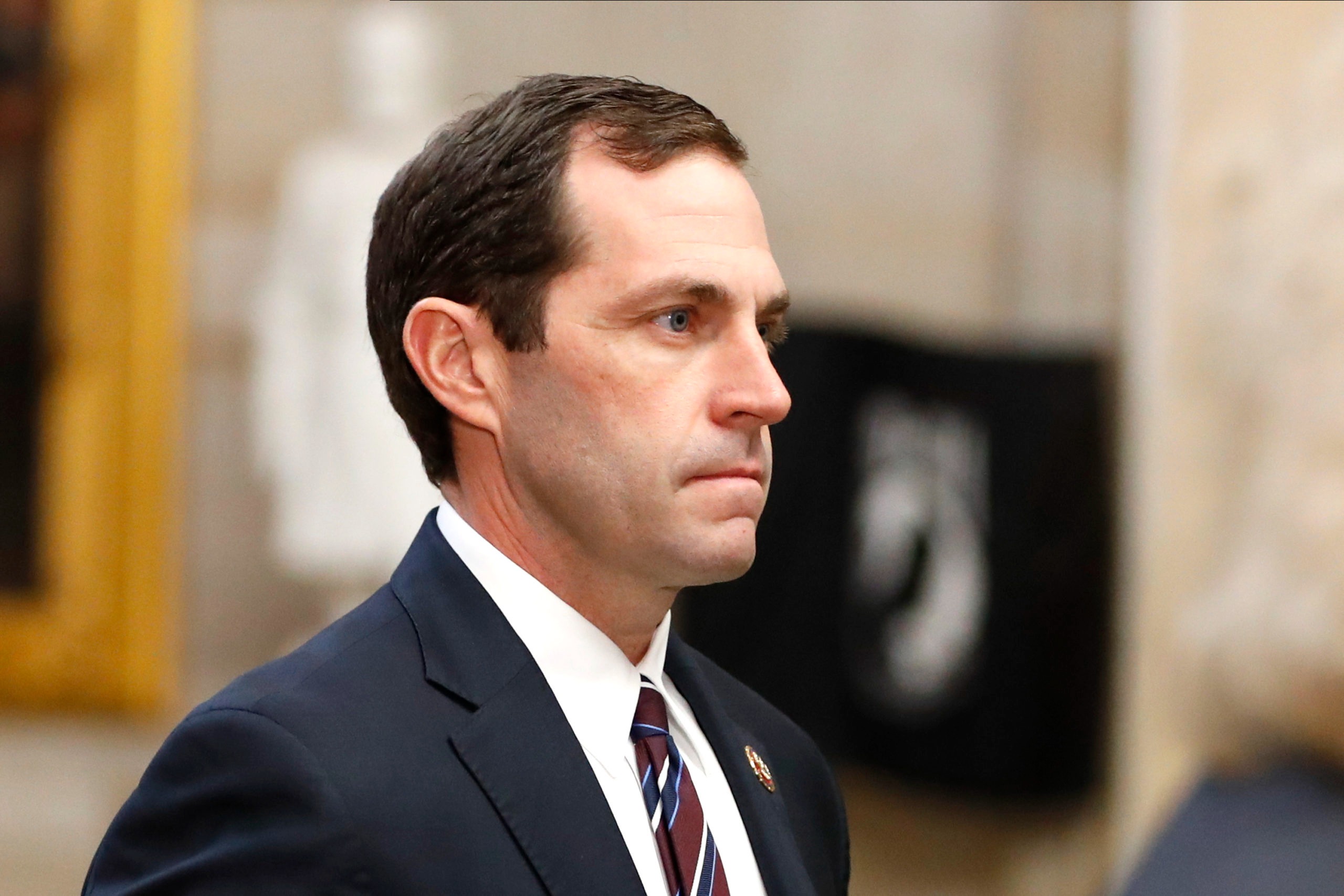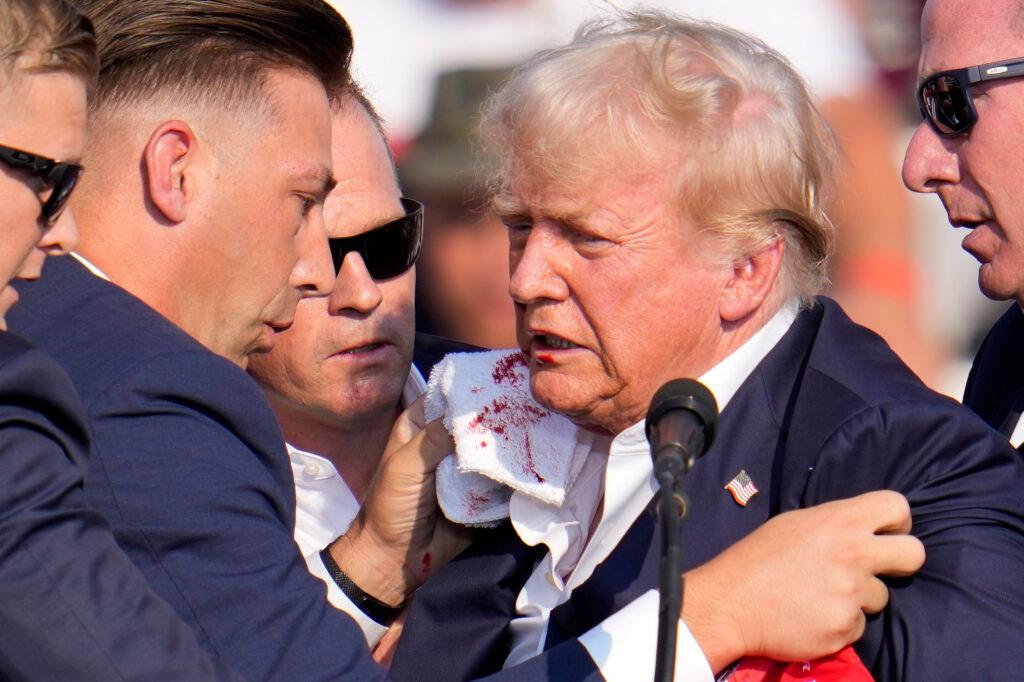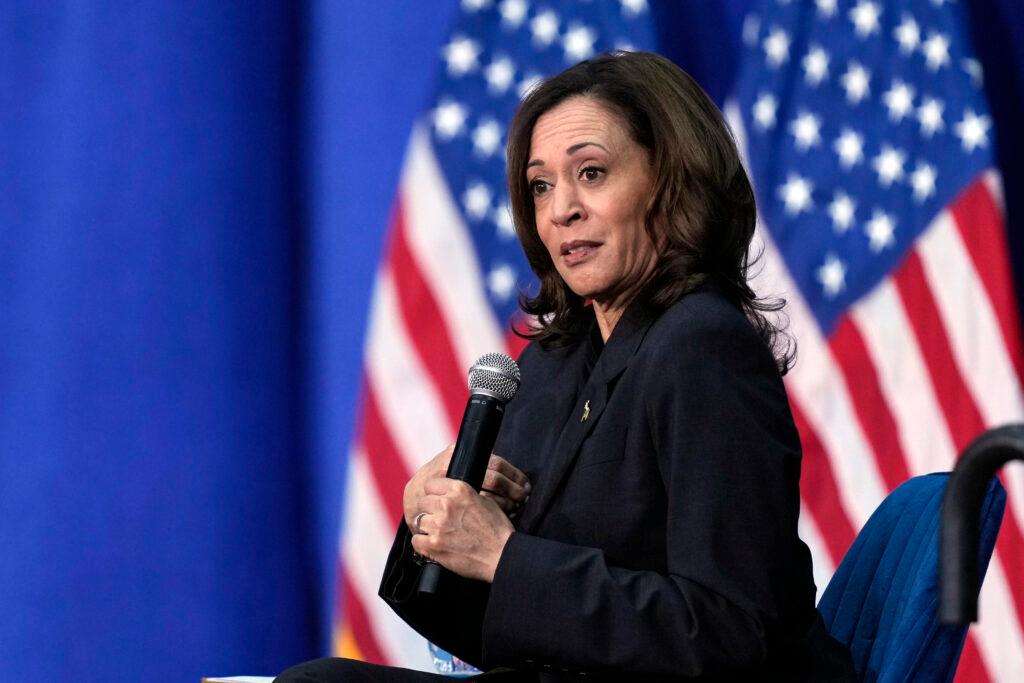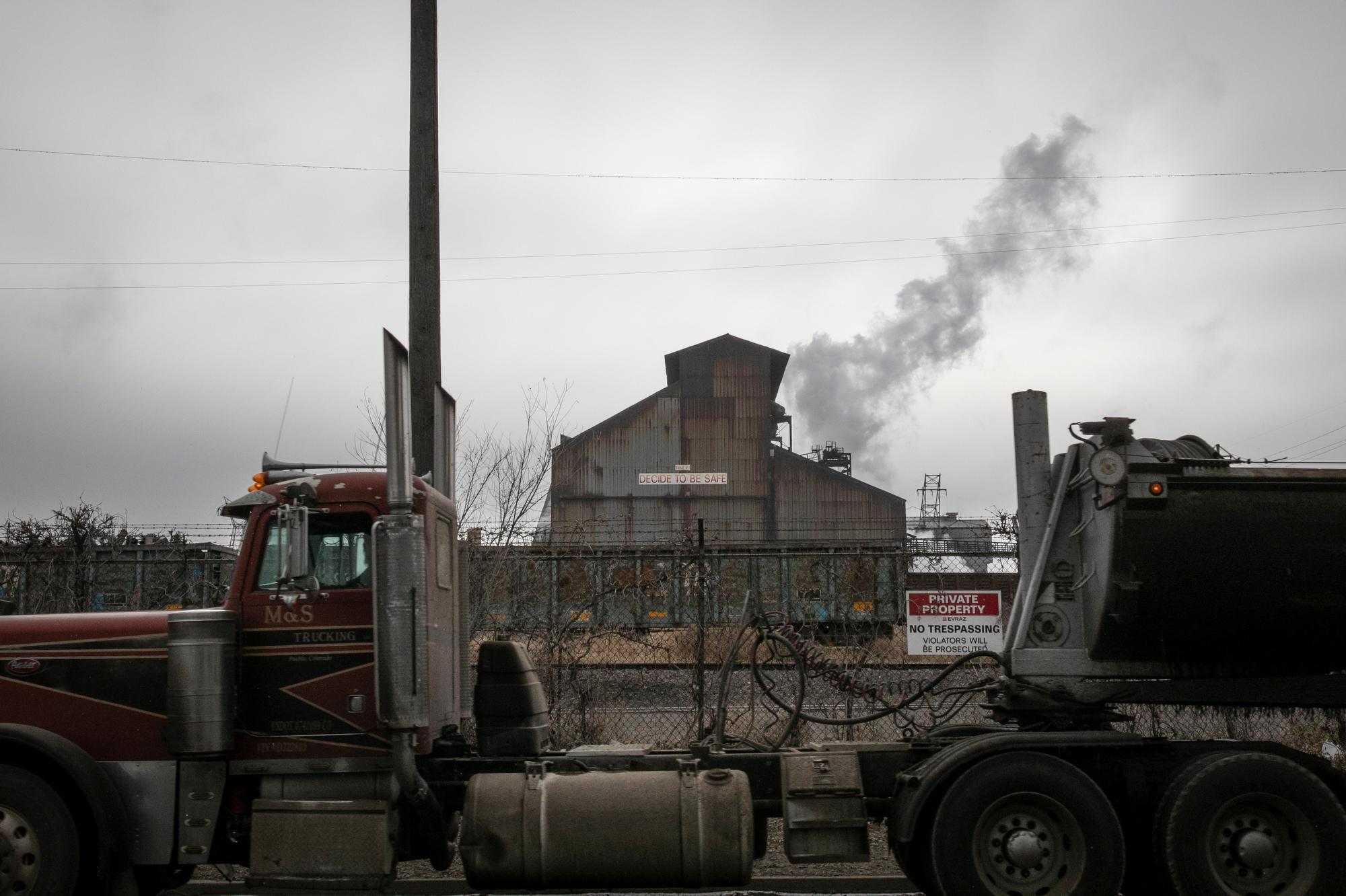
Colorado Representative Jason Crow says the Secret Service is spread thin and working overtime as it tries to protect a sitting president and two presidential tickets – including a former president and all their families.
“There's no modern equivalent to that scenario where the Secret Service has faced that big of a task,” said Crow, a Democrat from Aurora. “And then, on top of that, you're adding in a very tense, very volatile political environment where threats against elected officials are at historic highs. For example, they’re quadruple what they have historically been against just members of Congress.”
Crow is one of the leaders on a task force investigating the attempted assassination of former president Donald Trump in Butler, Pa. on July 13. The task force might also investigate a second incident in West Palm Beach, Florida that occurred over the weekend.
This interview has been edited for length and clarity
Ryan Warner: Do you feel confident right now in the safety of the nation's presidential candidates and their families?
Rep. Jason Crow: Well, that's the point of our task force here is to ask those tough questions and to answer, I think, the uncertainty that every American feels right now, given the volatility in our politics and the extremism that we're seeing on a lot of fronts, to try to restore that confidence. And sitting here right now, we're just beginning that process. So, no, I'm not there yet. There's a lot of concerns that I have about resourcing of the Secret Service, about whether or not they have the resources, the staffing, the funding that's necessary to do what they're being asked to do right now.
Warner: Do you want to say more about that? So, that's both a money and a people question. What are the gaps you see?
Rep. Crow: Well, I think about this in a couple of different ways. One is you have the unique dynamic of this presidential cycle. And what I mean by that is you have a current sitting president, who is now no longer running for president that's getting presidential-level security. You have a vice president, a sitting vice president who is running as a presidential candidate. You have a former president who is also running as a presidential candidate. And then, you have two sitting elected officials running as vice presidential candidates. And then, you have several former presidents and all of their families who are entitled to Secret Service protection. So, that is a lot. There's no modern equivalent to that scenario where the Secret Service has faced that big of a task.
And then, on top of that, you're adding in a very tense, very volatile political environment where threats against elected officials are at historic highs. For example, they’re quadruple what they have historically been against just members of Congress. We've seen indications of threats and plots by foreign adversaries against current and former elected officials. So, there's a lot going on. And then, on top of that, you have a Secret Service that has been working double overtime, right? Their resources, their staffing has really not changed in the last few decades. It’s about where it always has been. Their agents are deployed three-plus weeks out of every month. They're working 80, 90, 100-hour weeks. And I learned in the military, you just can't ask people to do that in perpetuity without some degradation of their acuity, their focus. That is just basic human physiology.
So, that is the situation, the landscape that we are dealing with here.
Warner: Okay. Now, in Pennsylvania, obviously former President Trump was wounded. This time, the Secret Service saw and stopped the suspect (in Florida) before he was able to get a shot off. Congressman Crow, having delved into Pennsylvania for the last several weeks, what's come out of Sunday's events that particularly worries you or perhaps is a common thread?
Rep. Crow: Well, one of the questions you always have to ask when you're investigating these situations, and I want to be clear that the current task force that I'm the ranking member of, I'm the lead Democrat on the task force to investigate the attempted assassination of Donald Trump on July 13th, that's the Butler, Pennsylvania incident, it is likely that we are going to be asked, in fact, probable that we're going to be asked to expand the jurisdiction and the scope of our task force to include this most recent incident in Florida. But they appear to be different scenarios.
In Butler, there were very clearly numerous lapses of security procedures and protocols that were not followed, things that were supposed to be done that were not done. In the most recent incident in Florida, it's unclear whether or not that's the case, whether in fact this was a successful protection of former President Trump and all the processes were followed and in fact, they foiled the shooting, and whether it's just a resourcing issue. So, they might be very different situations, but we have not yet started to really dig into the latter.

Warner: On the former, do you point to one specific breakdown? Is it a function of the kind of soup of conditions, perfect storm of conditions that you laid out for us?
Rep. Crow: Well, it appears to be a cascading series of failures, actually, so not one specific thing, but there are some broader overarching issues. And I say all of this with the caveat that we're still in the first phase of our investigation. So, we're conducting interviews, we're sending out document requests, reviewing those document requests. But the initial impressions of our task force are that command and control was not sufficient. So, there should be unified command and control. The Secret Service is ultimately responsible for making sure that happens. It was unclear to numerous agencies and officers providing security how that was being done that day.
There should be clear lines of communication and unified communication. In any one of these situations for the listeners here, the Secret Service is ultimately responsible, but there's a lot of different law enforcement agencies who are involved. Local sheriff's departments, local police departments, Homeland Security. And there should be unified command and control, there should be unified communication and very clear delineation of responsibilities. So, people are told exactly what their responsibilities are, what sectors they're responsible for. And then, another one would be the size of the perimeter. And I really realized that for the first time when I went there, when we traveled to Butler, Pennsylvania to those grounds, and we saw how small that perimeter was and where the shooter was sitting on top of a roof that was a little over 100 yards away from the platform, which was pretty shocking, frankly, to see.
Warner: I'll note that you, just in terms of politics, you support Vice President Kamala Harris for president. Have you spoken to her or her people about her security?
Rep. Crow: I have not. I have not had that discussion, and that's not our mandate. And I don't think speaking directly to the campaigns is really what our task is. And in fact, we're trying very hard to keep this a bipartisan effort. And listen, I'm a proud Democrat, people know that well about me, but I really strongly believe that in America, people deserve answers to the protection of their elected officials. Whether you're a Republican, you're a Democrat, you're an unaffiliated voter, you must have confidence that your candidate is going to be secure. And right now, people don't have that confidence. And it's really important that we make sure that not only they have confidence, but indeed, in fact, they are secure, right?
It's not just the impression and the feeling of security, but we actually need security. We cannot have people attempting to assassinate or assassinate our elected officials. That would throw us into chaos, in my view. So, we need to fix this, and I'm very, very committed to keeping this effort bipartisan. And that's going to be a challenge, I think. There are a lot of people out there who want to pull efforts like this down different rabbit holes, and I'm going to resist that because I think it's too important.

Warner: Well, you can tell me if this is a rabbit hole I'm pulling you into. I want to note that you were in the Capitol January 6, holing up in the House as Trump supporters stormed the building. We know that Mr. Trump has a long history of calling for political violence. Meanwhile, he's telling Democrats to tone down their rhetoric. Although I think there's some both-sides-ism going on there, but how do you view it?
Rep. Crow: Well, I reject the false equivalency and the both-sides-ism. Democrats have been very clear in their rejection of political violence. And you've seen this very consistently where Speaker Pelosi, Hakeem Jeffries, Vice President Harris, President Biden, me and others uniformly reject violence. We believe that Americans and voters know the difference between people who are campaigning vigorously and being very serious about their issues and what's at stake in this election. And don't get me wrong, there's a lot at stake in this election. I've been very clear about that. I think this is the most important election of my lifetime, there's no doubt about it, and I'm going to campaign accordingly. But again, we have to be able to do both of these things. Also at the same time, condemn political violence and say, "We're going to have a very, very, very vigorous debate, and it's going to be tough debate, and we're going to call things out as we see them and speak the truth. And at the same time, no violence is acceptable, period."
Warner: There's such a sensitive balance between what is the responsibility of the protector and what is the responsibility of the protected. So, the Washington Post reports that Trump's golf outings have concerned the Secret Service for some time. He plays at his own clubs, which are reportedly difficult to secure. And although Sunday's round was unplanned, he does generally follow a predictable routine. Again, I know it's premature to start asking you specifics about Florida, but how do you understand what is the protected's role to follow instructions or to seek a life of freedom versus the protector's role to adapt to anything that the asset wishes to do and be?
Rep. Crow: It's an interesting question, and you ask the Secret Service that, in fact, I have asked the Secret Service that. We had a meeting with Acting Director Rowe last week with the task force, and he was really clear that it is the Secret Service's job to protect the protectee, regardless of the circumstances. And obviously, those circumstances fall along some risk range. And he admitted as much that if the Secret Service had its choice, they would just keep the president in the White House all the time just for security. But of course, no candidate wants to do that. And he kind of talked about some of the historical precedent here that just a couple of decades ago, every president, regardless of political background, was a lot less accessible.
People just didn't campaign as much, campaign seasons were shorter, there were fewer events, they had fewer people. The modern era of politics and campaigning poses significantly more interaction and transparency to the public and our candidates, which I think is a good thing. But of course, it poses additional challenges to the Secret Service, which is why they're asking for more resources, they're asking for more agents, more funding. But then, the last piece is the responsibility of the protectee. I do think the protectee, regardless of who it is, should be listening to what their detail is saying. And if the detail says, "Hey, this presents an unacceptable risk," or "We will have a hard time protecting you in any given scenario," then of course, I think that there's some obligation to listen there.
Warner: Is there emergency funding you could send the Secret Service between now and the election or something?
Rep. Crow: Yeah, the Secret Service has asked for supplemental funding. We're actually looking at that supplemental request and going through it in real time this week. So, I'm not going to speak as to what that number is and what exactly they're asking for. It would be helpful, but I will tell you between now and November 5th, we are not creating more Secret Service agents, right? You can't do that. I mean, these are highly-trained people. The pipeline for protective detail agents is years in the making. So, there is a longer-term challenge here that I think we have to invest in. But then, in the short-term, there's the issue of reallocation of agents and resources and whether or not we're asking additional agencies to help. And one example of that is the Department of Defense does provide assistance to the Secret Service during the campaign season. The Secret Service has asked the DoD for supplemental assistance, that has been provided. I'm not going to go into the details of what that is, but there are additional resources that are available within the government that can help cover down.
Warner: Congressman, I know you have a time crunch. May I ask a question about Ukraine before I let you go? You're a military combat vet, member of the House Foreign Affairs Committee, and you've been a strong supporter of US aid to Ukraine. In April, Congress passed and President Biden signed a $61 billion aid package. The president has said recently that he's considering allowing the Ukrainians to use long-range missiles provided by Western countries to strike inside Russian territory. Do you think that's a good idea?
Rep. Crow: I do. I have supported that. We're in the third year of this war. I don't take lightly the issues of escalation, but we know enough about what we're dealing with here with Russia and Vladimir Putin, that the risk of escalation is very minimal, in my view. I think we have enough intelligence and enough data and information to assess that risk properly.
Warner: Wow. I mean, Putin says that this would be essentially Russia at war with NATO.
Rep. Crow: Yeah. Well, Putin has said that a dozen times in a dozen different circumstances. He says a lot of things. And what Putin does is he says rhetoric, he makes statements that cater to our own concerns. And there's a phrase for that, it's called self-deterrence, right? Where we indicate something that we're worried about, and then Putin just feeds us a steady diet of that thing. And then, all of the supposed red lines that he's established result in no response, right? And what we can tell you is Vladimir Putin does not want to go to war with NATO, period. He does not. He's been very clear about that, and he knows that would be a disaster for him.
So, he's been avoiding that. We've been avoiding that. We think the risk is very minimal to that, although we pay attention to it. But what I can say is that the risk of Ukraine not being successful on the battlefield and not being able to do what's necessary to defend themselves and frankly, continued attacks on civilians, civilian infrastructure, which Russia is purposely doing, they're purposely targeting civilian apartment complexes, hospitals, the electrical grid. They're trying to break the will of the Ukrainian people, which of course, they will not be able to do. But we need to make sure the Ukrainians can defend themselves and I think that's in America's national security and moral interest.









